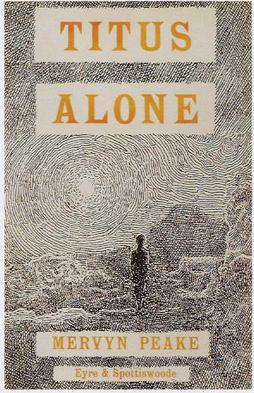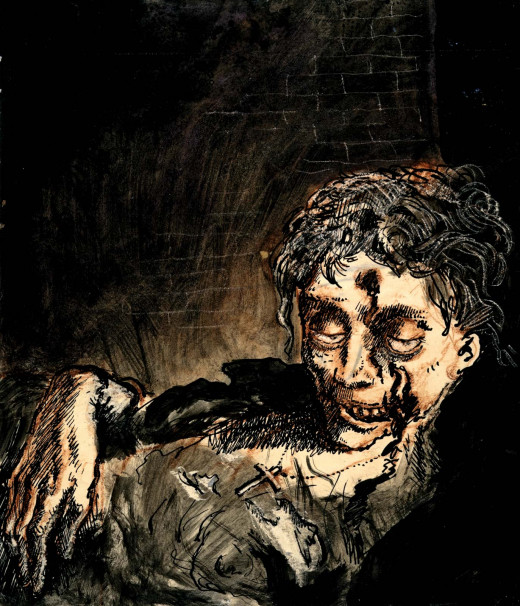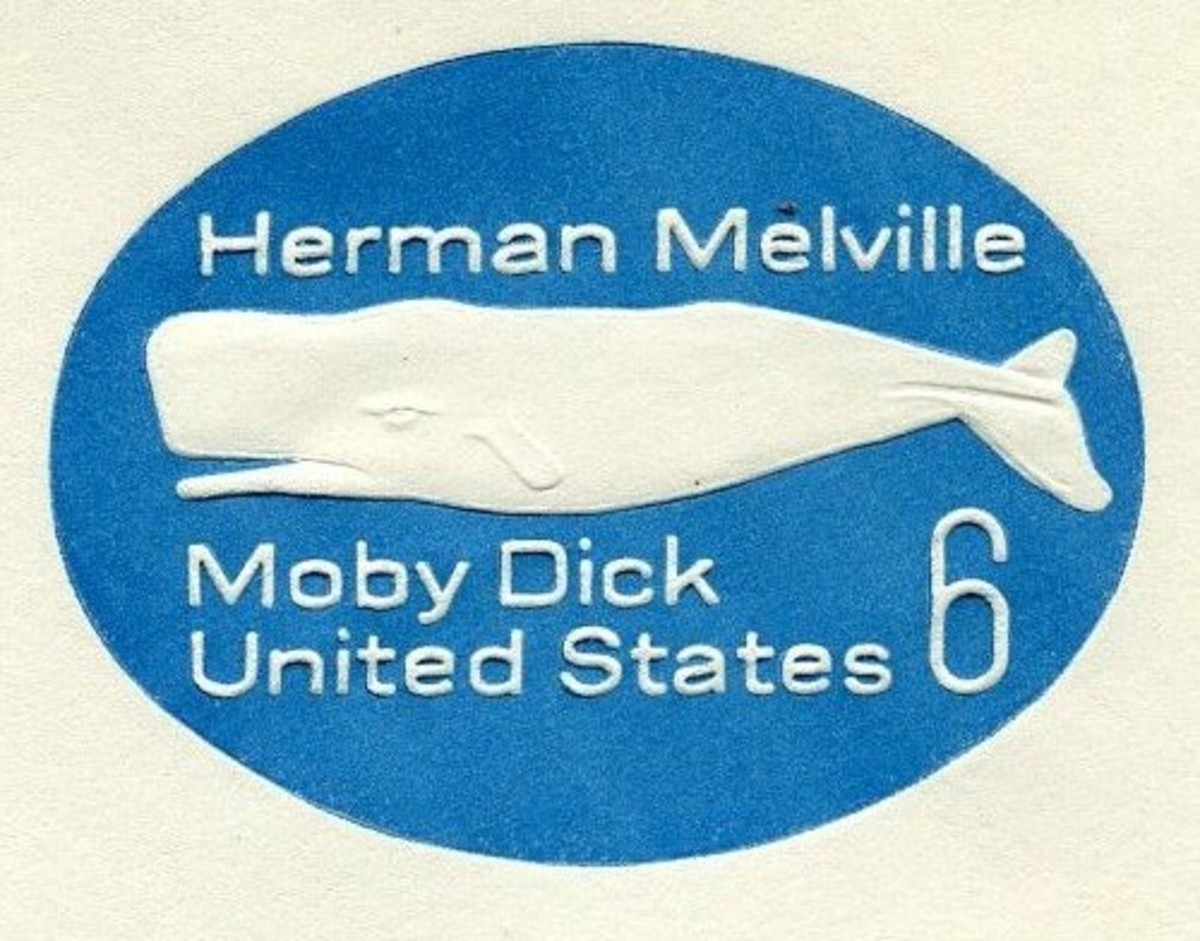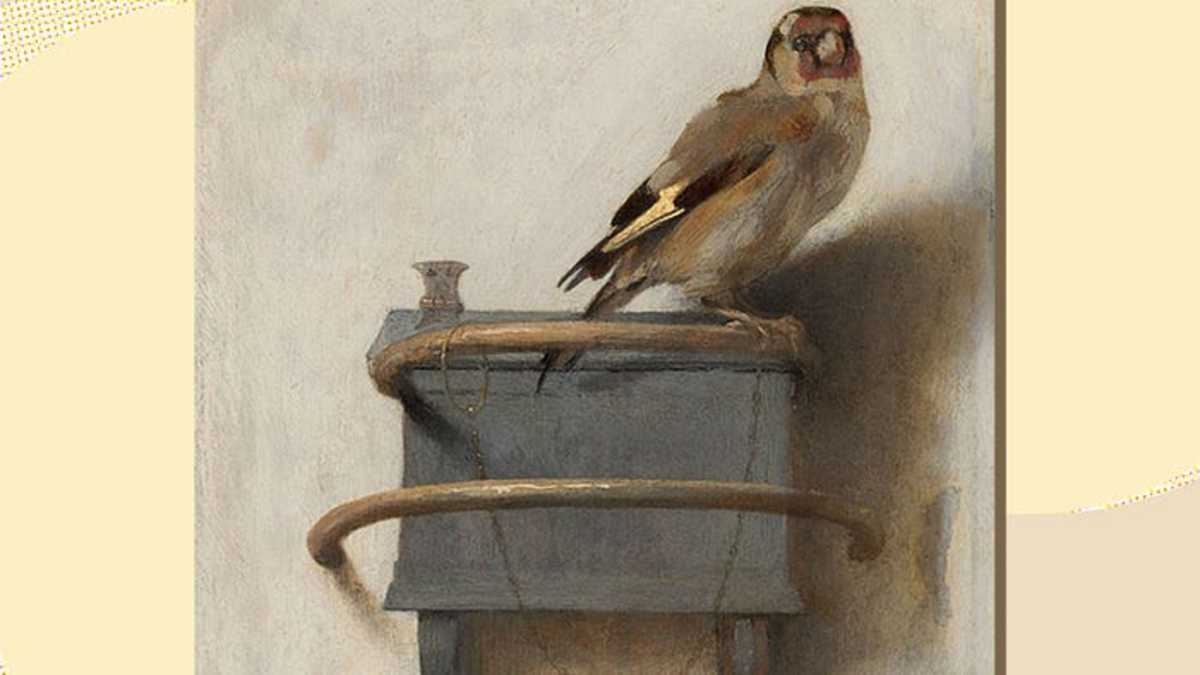Titus Alone Book Review - Lunchtime Lit With Mel Carriere

When Secrets Are Stranded On An Author's Desert Island
How many ideas have been stranded on an unreachable desert island in an author's mind, due to some irreversible tragedy? Coleridge never completed his epic poem about Kubla Khan because he was interrupted by "A Person from Porlock" knocking on his door, making him forget his dream, leaving us to guess the ending. Heretofore, the name Xanadu will be remembered as the bad 1980 big hair movie that inspired the Golden Raspberry awards. Leonardo da Vinci left The Adoration of the Magi unfinished because he ran off to curry favor with the Duke of Milan, and now we have only a rough draft in dull sepia tones to show for it.
Even more serious, and I suppose more final, is when authors die before they can complete their pièce de résistance. Some authors like David Foster Wallace of The Pale King carefully collate their working manuscripts before immolating themselves, giving their posthumous publishers - salivating at the opportunity to make extra bucks off of tragedy, something tangible to work with. But most artistes who kick the bucket offer us no or very few clues about their swan song performance, either because they didn't know they were about to buy the farm, give up the ghost, bite the dust, cash in the chips, take a dirt nap - or else they were spiraling into a state of sickness, perhaps madness, that rendered them incapable of fulfilling the artistic mission.
The latter was the case for author/illustrator/designer/painter/poet Mervyn Peake, the creator of the latest subject of Lunchtime Lit, Titus Alone. Just recently I reviewed the eponymous volume of the Gormenghast series here, to which this book belongs, with the promise to take up the untimely death of its author in the discussion of the third and final volume.
Titus Alone was not intended to be the third and final volume. Unfortunately, Mervyn Peake departed from this world with the secret of how many installments remained, and what was going to be the ultimate fate of his hero, the wayward Earl Titus Groan. Would Titus's flight from his hated duties as the ruler of Gormenghast continue, or would he grow weary of wandering and return home to take up his dreary responsibilities? We have hints, we have clues, but Peake only piqued our interest with the last book of Gormenghast actually written by him. The enigma lies buried in his worm-riddled brain.

Lunchtime Lit Rules
Lunchtime Lit is a desert island itself, a lonely atoll surrounded by a shark infested lagoon. In this desolate locale reviewed books are stranded until they waste away, just like many of the authors that have written them. Lunchtime Lit books can be read only on Mel's half hour postal lunch break, they can never signal a passing ship to be steamed off for sneak reads in more favorable climes.
Lunchtime Lit Year To Date Recap
Book
| Pages
| Word Count
| Date Started
| Date FInished
| Lunchtimes Consumed
|
|---|---|---|---|---|---|
Infinite Jest
| 1079
| 577,608
| 10/16/2017
| 4/3/2018
| 102
|
Wuthering Heights
| 340
| 107,945
| 4/4/2018
| 5/15/2018
| 21
|
Red Sorghum
| 347
| 136,990
| 5/16/2018
| 6/23/2018
| 22
|
Gormenghast
| 409
| 181,690
| 6/26/2018
| 8/6/2018
| 29
|
Moby Dick
| 643
| 206,050
| 8/8/2018
| 10/23/2018
| 45
|
Jude The Obscure
| 397
| 149,670
| 10/27/2018
| 12/10/2018
| 28
|
Titus Alone
| 224
| 95,120
| 12/11/2018
| 1/5/2019
| 18
|
*Seventeen other titles, with a total estimated word count of 3,649,830 and 502 lunchtimes consumed, have been reviewed under the guidelines of this series.
**Word counts are estimated by hand-counting a statistically significant 23 pages, then extrapolating this average page count across the entire book. When the book is available on a word count website, I rely on that total, for better or for worse.
***This is the last Lunchtime Lit book read during my "blue period," when I disappeared from Hub Pages for a prolonged sabbatical. Two other "stale" reviews follow to bring me up to date, but they are already written.

Steampunk Standard
Titus Alone takes place in a very different setting than its two predecessors, Titus Groan and Gormenghast. The ancient, crumbling castle of Gormenghast and its archaic technology have been replaced with a more modernistic, "steampunk" world of steam powered cars, sleek polished buildings of chic design, and insidious doomsday devices engineered by evil scientists. Beneath this place lies a dark, dripping cavern, where those who refuse to conform to the hive mind of the above ground city have sentenced themselves to gloomy, hopeless exile.
Peake does not adequately explain what form of interdimensional time travel brought Titus to this radically altered landscape in the gulf between books, but here he finds himself after his battle with Steerpike is won, and his flight from his birthplace is not a word, but a deed.
One certainty is that Titus has certainly grown up. His hormones have blossomed, turning him into a regular horn-dog, basically wanting to hump the leg of any attractive female nearby. First he shacks up with a wealthy cougar who takes him into her home, where Titus eventually grows bored of an abundance of sex and departs, as is always his peripatetic modus operandi. Then he incurs the wrath of the fetching daughter of an evil scientist, who desires a meaningful relationship with Titus, but is provoked into vengeance when she discovers the wandering Earl only wishes to use her sexually. The outraged daughter uses the vast powers at her father's disposal in a plot to bring Titus into submission.
Despite accumulating enemies through his aloof attitude, the wayward Earl also gains friends along the way, even a fan base in the fetid, dripping cavern beneath the river - a loyal crew of subterranean, non-conforming misfits who fight to keep Titus from harm. As such, our wandering hero escapes for further adventures, but who is to say what these adventures were intended to be?
Peake paints Titus Alone in verbal brushstrokes as precise as those he used to illustrate the works of other writers, to adorn the stages of dramatic performances, and to document the dying inmates of Bergen-Belsen deathcamp, where he was sent as a correspondent at the end of World War II. The reader's mind is transformed into a canvas that is swallowed in the oppressive gloom of the cavern beneath the river, where the maddening drip of water seeping down upon the inhabitants is made tangible in our heads, a form of literary water boarding. Few writers illustrate a setting with finely crafted prose as effectively as Mervyn Peake can, and this may spring from his early career as a visual artist, a vocation in which he was equally brilliant.
Mervyn Peake's highly visual imagination has had a significant impact on art forms since his brief but powerful flicker of light burned out. Titus Alone is considered by those who define and codify such things as the progenitor of the steampunk movement. Oxford University Press define Steampunk as "a subgenre of science fiction or science fantasy that incorporates technology and aesthetic designs inspired by 19th-century industrial steam-powered machinery."
Titus Alone does indeed take Gormenghast out of Gothic, playing out its plot against a backdrop that more closely resembles our modern Era, but substituting fossil fuels for steam. Without really trying the book has influenced cinematic works like Brazil, Hellboy, The League of Extraordinary Gentleman, and The Wild Wild West. If you ask me, His Dark Materials (The Golden Compass), also looks a little steampunkish. The genre has also worked its way into art, architecture and fashion, as folks reach into impossible dreamscape realms for a non-conformist identity, a persona typified by the restless young Earl - the ruggedest of rugged individuals, an angry young man who refused to be pigeon-holed into oblivion.

Dewy Body Dunce Cap Demons
The answer to the ultimate fate of orphaned Earl Titus Groan lies buried in the folds of Mervyn Peake's corrupted gray matter. This multi-talented genius did not have his muse shielded from the plagues that enfeeble the brains of all classes of men prematurely, whether they be rickshaw pullers or mighty creative behemoths.
After the 1957 failure of his play A Wit to Woo, Peake was admitted to a hospital for nervous breakdown, an episode that signaled his slow slide into insanity. Over the course of the next twelve years, the Gormenghast creator increasingly succumbed to dementia. His prolonged illness has now been attributed to Dementia with Lewy bodies. Because the current knowledge of this disability was lacking at that time, efforts to treat his symptoms with techniques such as electroconvulsive therapy did not meet with success.
In the June, 2003 issue of JAMA Neurology, Dr. Demetrios J. Sahlas made a case for Lewy Body Dementia being the cause of Mervyn Peake's decline and ultimate fall. Lewy bodies, named after German neurologist Friederich Lewy, are abnormal deposits of alpha-synuclein protein in the brain. When the substance is produced to excess it forms clumps in neurons, causing them to degenerate and die. This neural decay results in distinctive symptoms that Dr. Sahlas, drawing from the recollections of those who attended to Mervyn Peake in his tormented final years, was able to identify.
The earliest such symptoms manifested during the author's fifth decade, when Peake demonstrated the tell-tale shaking of Parkinson's disease in his hands. He also began to show signs of cognitive decline, which some critics claim are present in the writing style of Titus Alone. But if this novel is Peake at his deranged worst, I wouldn't mind eating a slice of that crazy pie.
Peake then suffered bouts of depression and his behavior became increasingly erratic, marked by confusion and hallucinations. His attention span decreased to the point where he could not focus on the stories he was commissioned to illustrate. Eventually, the only artwork he produced was of strange, dunce-cap demons that haunted his secret visions. In the lucid moments of his roller coaster ride in and out of sanity, Peake penned strange poems about the floating shapes that tormented him down there in the well of madness, a delusional world produced by microscopic lumps of protein mush that were suffocating his neurons.
Eventually Mervyn Peake succumbed to his affliction, passing on in a care home on 17 November, 1968, just a tad over 51 years ago.
Despite advances in medicine since Peake's death, Lewy Body Dementia still plagues us. Proof of this is demonstrated in the death of another talented and beloved victim of this wretched disease, actor/comedian Robin Williams, whose similar affliction has been postulated as a catalyst of his 2014 suicide.

Message In A Bottle?
Despite the fact that the future installments of Gormenghast were stranded forever on the desert island of his afflicted mind, Mervyn Peake did leave us a clue, a sort of meager, scribbled strand, a message in a bottle he set afloat shortly before disappearing with his protagonist Titus Groan into the ether.
With his magnificent mind slowly rotting away in a mental hospital, Mervyn Peake managed to scrawl a few mostly incoherent snippets for the further adventures of the 77th Earl of Gormenghast. These fragments were rescued by his widow, Maeve Gilmore, who used them to compose a fourth volume in the Gormenghast series, entitled Titus Awakes. It is unclear how much of this book conforms to the envisioned plot lines of Mervyn Peake's imagination, and how much of it was therapy on the part of an aggrieved wife, trying to cope with the premature death of her spouse. In either case, Peake's widow never had it published. The manuscript lay hidden beneath a box of baby clothes in the attic until after her death in 1983, when a granddaughter accidentally discovered it.
Titus Awakes seems to paint a more idyllic portrait of the last of the Groans, one in which he eventually really does settle down upon an island and lives happily ever after, an ending that seems unlikely for the restless royal waif. Are we to believe that this is the intended outcome for our nomadic, footloose young Earl, or does the answer lie forever buried, sealed in the crypt that contains the now consumed contents of a skull which was once the vibrant, living canvas where the marvelous fictional world of Gormenghast sparked to life.








